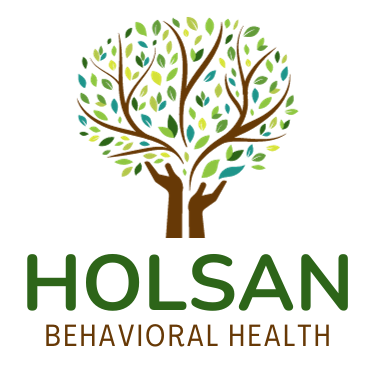Every year, National Eating Disorders Awareness Week (NEDAW) shines a light on eating disorders, aiming to educate, support, and encourage open conversations about these serious mental health conditions. Organized by the National Eating Disorders Association (NEDA), this observance is dedicated to increasing awareness, breaking stigma, and advocating for access to care. EDAW 2025 is taking place Monday, February 24 – Sunday, March 2, 2025.
At Holsan Behavioral Health, we recognize the importance of this week and encourage our community to take action—whether by learning more, supporting a loved one, or helping to prevent eating disorders before they start.
Why NEDAW Matters
Eating disorders affect millions of people across the U.S., yet they often go undiagnosed or untreated due to stigma, misinformation, and barriers to care. NEDAW serves as a crucial reminder that these conditions are serious but treatable, and recovery is possible with the right support.
This year’s theme, “Everybody Has a Seat at the Table,” emphasizes inclusivity, ensuring that awareness efforts reach all individuals, regardless of age, gender, race, or background.
To learn more about eating disorders, symptoms, and treatment, check out our previous blog post on common eating disorders.
How You Can Get Involved in NEDAW
Raising awareness and supporting those affected by eating disorders can make a real difference. Here are some impactful ways to participate:
1. Educate Yourself and Others
Misinformation can contribute to stigma and delay treatment. Take time to learn the facts about eating disorders from credible sources like the National Eating Disorders Association (NEDA) and the National Institute of Mental Health (NIMH). Share what you learn with friends, family, or on social media to spread awareness.
2. Support Someone Struggling
If you know someone battling an eating disorder, listen without judgment, encourage professional help, and remind them they are not alone. Offering emotional support can make a significant impact on their recovery journey.
3. Advocate for Better Access to Care
Many individuals face challenges in accessing treatment due to financial barriers or lack of available resources. Support initiatives that push for greater access to mental health care, including advocating for policies that improve insurance coverage for eating disorder treatment.
4. Participate in Awareness Events
Throughout NEDAW, NEDA and other organizations host online and in-person events, including panel discussions, educational webinars, and fundraising activities. Get involved by attending these events, sharing resources, or donating to organizations that support eating disorder recovery.
5. Encourage Prevention and Early Intervention
Prevention starts with healthy conversations about body image, self-worth, and balanced nutrition. Educators, parents, and healthcare providers play a key role in recognizing early signs and fostering environments that promote positive mental health.
Practical Ways to Build a Healthy Relationship with Food

Building a healthy relationship with food is an essential part of overall well-being. While eating disorders are complex mental health conditions, there are evidence-based strategies that can help individuals develop a positive approach to eating:
- Practice Mindful Eating: Paying attention to hunger and fullness cues can help individuals develop a stronger connection to their body’s needs.
- Avoid Food Guilt: All foods can be part of a balanced diet—restricting certain foods often leads to unhealthy patterns.
- Focus on Nutritional Variety: Instead of fixating on “good” or “bad” foods, aim for balance by including diverse nutrients in meals.
- Challenge Negative Thoughts About Eating: Cognitive Behavioral Therapy (CBT) techniques can be helpful in addressing rigid beliefs about food and weight.
- Seek Professional Guidance: Registered dietitians and mental health professionals can provide personalized support in developing healthier eating habits.
It’s important to remember that eating disorders are not caused by a lack of willpower or poor eating habits. Seeking professional help is key to recovery, and fostering a healthy relationship with food is a journey that takes time and support.
Final Thoughts
At Holsan Behavioral Health, we are committed to raising awareness and providing compassionate care for individuals struggling with eating disorders. If you or a loved one needs support, don’t hesitate to reach out for professional help.
This National Eating Disorders Awareness Week, let’s work together to break the stigma, promote education, and ensure that everyone has access to the care they need.
For more information or to schedule an appointment, visit our website today. If you or someone you know is in crisis, call the National Eating Disorders Helpline at 1-800-931-2237 or seek immediate medical assistance.

